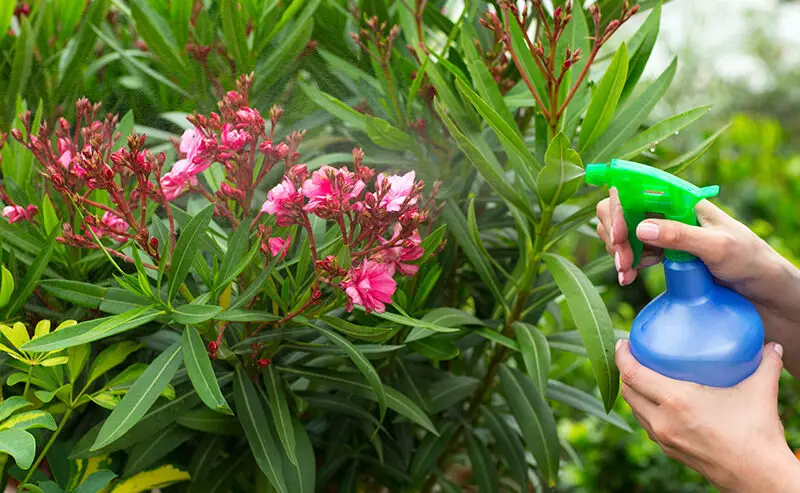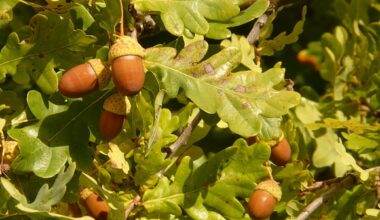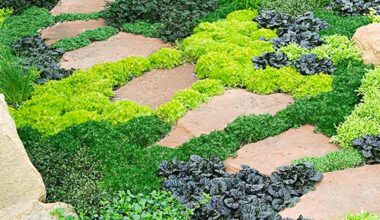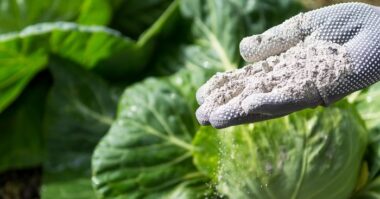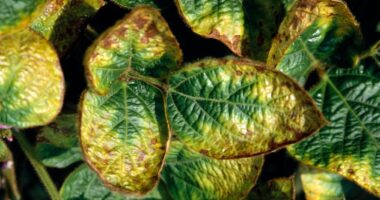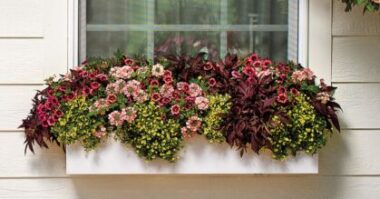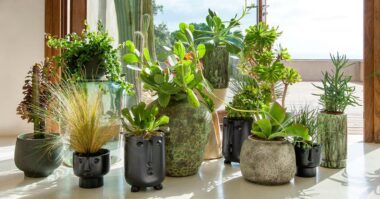Cider vinegar can be used as a natural maintenance product, in the same way as spirit vinegar, which is even less expensive. For example, it is an excellent natural deodorant: boil a glass of it in a saucepan.
The steam neutralizes unpleasant odours and the strong vinegar scent fades away very quickly.
It is also possible to use it on plants, here is how to proceed:
Contents
9 ways to use cider vinegar in the garden
1. As a herbicide
The main quality of cider vinegar in the garden is its acidity, due to its high acetic acid content. Just as it causes chemical reactions when we ingest a little of this liquid, so too does it when it comes into contact with plant tissue.
However, it should be noted that its effect is short term. It will therefore not be as effective as weeding with other products or even manually.
But it can be really useful to remove small weeds. Such as those growing in tile joints, for example.
2. As an antifungal agent
In addition to eliminating weeds, using vinegar in the garden will help you get rid of fungus in your plants.
Its effect is similar to that of baking soda. Sodium bicarbonate increases the pH and generates an alkaline medium that prevents the proliferation of fungi. Vinegar lowers it and forms an acidic medium, which is also unfavourable for them.
How to use it? One tablespoon of vinegar, diluted in two liters of water. This mixture should be applied to the leaves twice a week and after each rainfall.
3. As a soil acidifier
As mentioned earlier, vinegar lowers the pH of the medium in which it is found. In our case, we will use it for the soil. Just mix one cup of vinegar with one liter of water and spread it on the soil.
This technique has two advantages. First, it is very positive for the growth of plants such as azaleas, roses, lavender, blueberries and gardenias.
Indeed, all these plants need acidic soils. Secondly, it also helps the soil to release iron, a mineral that is very beneficial for plants in the garden.
4. As an ant repellent
Cider vinegar in the garden also helps to fight against harmful animals. Indeed, if ants have chosen to live in your garden, you can use vinegar to eradicate them.
All you have to do is spray this undiluted product on the anthill for a few days. Little by little, you will see them move away.
Of course, you can also do it in other parts of the house. Vinegar is recognized as one of the most effective natural insecticides and has no harmful effects on your health.
It also works with other types of animals that can attack your plants.
If you sprinkle vinegar on the leaves, you can scare away snails and slugs quickly.
5. Cider vinegar in the garden as a fertilizer for potted plants
Now we’re going to reveal a secret to you. Using vinegar in the garden also helps you to have healthier plants in your pots.
You can mix two tablespoons of cider vinegar with three liters of water. Then water the plants with this preparation. The results will be visible in no time!
6. As a flower conditioner
If you like to decorate the house with flowers in vases, vinegar can be your great ally. Thanks to it, flowers will last longer.
Just add two tablespoons of vinegar and two tablespoons of sugar to a liter of water. Then pour this mixture into the vase and place the flowers in it.
The following days, you will have to continue the maintenance. Every 5 days or so, cut off the stems of the flowers and change the solution.
7. As an anti-rust agent for gardening tools
Indeed, the use of vinegar in the garden is not only useful for your plants. Your gardening tools can also benefit from its virtues.
If you are tired of working with rusty tools, apply pure vinegar on them and they will be clean after rinsing. Another good alternative is to soak the tools directly in pure vinegar. Either method is effective and easy to use.
We can therefore conclude that cider vinegar in the garden is the best ally you have at home without knowing it.
We are often unaware of its advantages and do not take advantage of it properly. It is therefore time to take advantage of all its possibilities.
8. Stopping yellow leaves on plants
Some plants to grow and grow properly need soil that is more or less acidic. This is the case of gardenias, azaleas or hydrangeas, which sometimes will suddenly have their leaves begin to yellow.
This is often a sign of a change in the PH, the acidity level in the soil, a concern that can be resolved very quickly by watering the soil around a mixture of water and cider vinegar. Count 3 tablespoons of cider vinegar per liter of water. Water the soil around, not on the plants, about once a week for a month, the leaves of your plants should quickly stop turning yellow.
9. Clean bird droppings
The little birds had a great time on your terrace which is full of droppings? just spray some pure cider vinegar on it and wipe it off with a cloth or something else, on one hand it will make them peel off easily and on the other hand it will kill germs and bacteria.
Remember that cider vinegar is excellent for use in all insect traps whether they are flying or crawling.
If for example you plan to have a dinner or a meal on a terrace, offer to mosquitoes, gnats and others a meal also with a bowl full of cider vinegar, you will be surprised to see afterwards that it will have attracted many insects.
Summary
As you probably know by now, cider vinegar has what seems to be about a million different benefits and uses. In fact, it is becoming practically an obsession for many.
You may already be using it in the morning as a drink for its energy and other health benefits. It’s effective for just about everything, from your skin to your hair to your home and more. But did you know it’s even useful in the garden?
That’s right, you can even use this bottle of apple cider vinegar in your garden, which means it may be time to stock up or at least start buying a much larger container.
